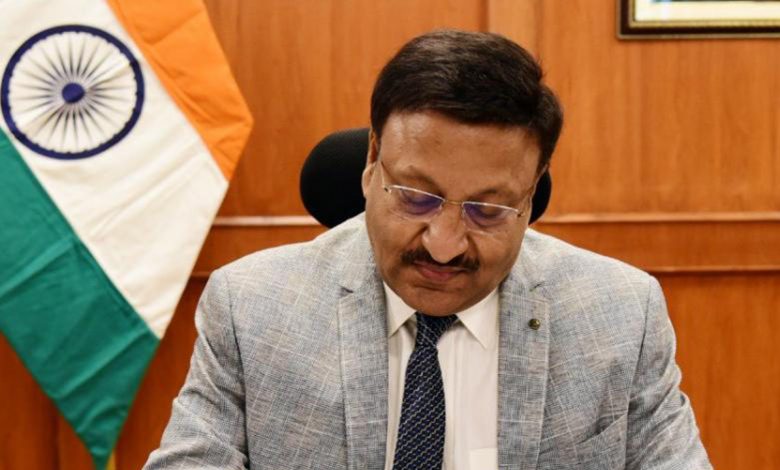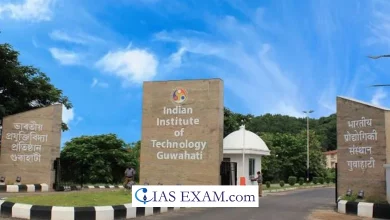Daily Current Affairs for UPSC
Chief Election Commissioner (CEC) and Election Commissioners
Syllabus- Indian Polity and Governance [GS Paper-2]

Context- According to a landmark ruling issued by a Constitution Bench of the Supreme Court, the Chief Election Commissioner (CEC) and Election Commissioners will be appointed by the President on the advice of a panel consisting of the Prime Minister, Leader of the Opposition (LoP) in the Lok Sabha or the leader of the single largest party in Opposition, and the Chief Justice of India (CJI).
Key Highlights
- The court stated that the Election Commission’s “fierce independence, neutrality, and honesty” required the end of the government’s monopoly and “exclusive control” over appointments to the highest polling body.
- The Chief Election Commissioner and the Election Commissioners are appointed by the Indian President.
- Their tenure is six years, or until they turn 65, whichever comes first.
- They have the same status as Indian Supreme Court Judges and receive the same benefits and salary.
- The procedure for removing the two Election Commissioners is not mentioned in the Constitution. It only allows for its removal upon the CEC’s recommendation.
- Neither the terms of the ECI’s members nor the ECI’s qualifications have been outlined in the Constitution.
- The election commissioners’ retirement has not prevented them from being appointed by the government again.
Election Commission of India
- India’s Union and State elections are overseen by the independent, constitutionally mandated Election Commission of India (ECI).
- It was established on January 25, 1950, which is also known as National Voters Day, in accordance with the Constitution. The commission’s secretariat is in New Delhi.
- India’s Lok Sabha, Rajya Sabha, and State Legislative Assemblies, as well as elections for President and Vice President, are overseen by this organization.
- It is uninterested in state panchayat and municipal elections. A distinct State Election Commission is established in this way by the Indian Constitution.
Provisions of the Constitution
- Articles 324-329 of Part XV of the Indian Constitution: It establishes a commission to handle election-related issues.
- Article 324: An Election Commission will be given responsibility for election supervision, direction, and control.
- Article 325: Regardless of religion, race, caste, or sex, no one shall be ineligible for inclusion in or claim to be included in a special electoral roll.
- Article 326: Adult suffrage will be used in elections for the House of People and Legislative Assemblies of States.
- Article 327: The authority of Parliament to regulate elections to legislatures.
- Article 328: The authority of a state legislature to regulate elections to that legislature.
- Article 329: prohibit court involvement in electoral matters.
Structure of ECI
- The Election Commissioner Amendment Act of 1989 made the commission a multi-member body, replacing the original single election commissioner.
- The Chief Election Commissioner (CEC) and any additional election commissioners, if any, appointed by the President from time to time make up the Election Commission.
- At the moment, the CEC and two Election Commissioners make up it.
- The Chief Electoral Officer, an officer of the IAS rank, provides assistance to the election commission at the state level.
Functions and Powers of ECI
-
- Administrative:
- to use the Delimitation Commission Act of Parliament to determine the country-wide territorial areas of electoral constituencies.
- to register all eligible voters and prepare and periodically update electoral rolls.
- to bestow election symbols and recognition on political parties.
- By strictly adhering to a Model Code of Conduct that was developed with the consensus of political parties, the Election Commission ensures a level playing field for the political parties participating in elections.
- Administrative:
- Functions of Advisory Jurisdiction and Quasi-Judicial Courts:
-
- The Constitution grants the Commission advisory authority over the post-election disqualification of currently serving members of state legislatures and Parliament.
- The President or, if applicable, the Governor to whom the Commission’s opinion is presented is bound by it in all such matters.
- In addition, the SC and High Courts refer cases involving individuals who have been found guilty of corrupt practices during elections to the Commission for its opinion on whether or not they should be disqualified and, if so, for how long.
- If a candidate fails to submit an account of his election expenses within the timeframe and in the manner required by law, the Commission has the authority to disqualify him.





.png)



